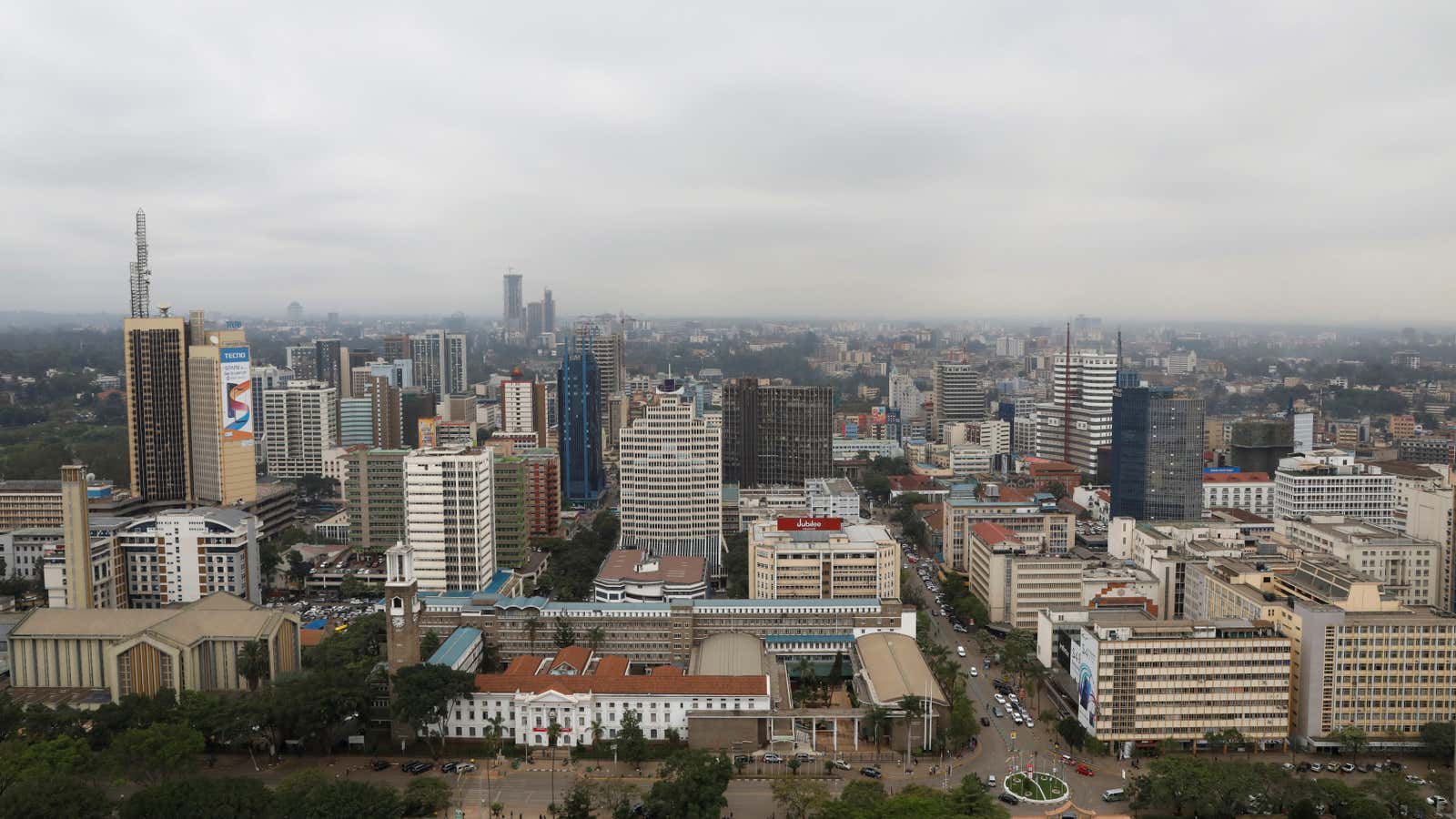Last month, the Organisation for Economic Cooperation and Development (OECD), an intergovernmental economic body, announced that 136 countries and jurisdictions had signed up to an agreement to have global corporations pay a minimum tax rate of 15%. But Kenya, Nigeria, Pakistan, and Sri Lanka had not agreed to the deal, the OECD said.
Now the two African countries have expressed their concerns about the deal, including Kenya saying it may cause it to end its new digital services tax (DST) and both countries raising issues with the deal’s dispute resolution requirements.
The global minimum tax deal covers multinationals with global turnover of at least €20 billion and at least 10% profit before tax. According to Kenya Revenue Authority (KRA) commissioner Terra Saidimu, only 11 companies that fit this requirement operate in Kenya, yet the country currently has 89 companies paying the DST, which targets such businesses.
“You need to know exactly what you are getting for you to forego what you already have,” Saidimu, the commissioner for intelligence and strategic operations, said at a recent tax forum by the agency.
Digitization has called for changes to tax rules
Digitization has created challenges in taxation. As companies operate digitally but not physically in different jurisdictions, some avoid tax and there are questions on how to change international tax rules, which are typically based on “brick-and-mortar” economic environments, to suit the current global economy.
The global minimum tax rate aims to change international tax rules to ensure multinationals pay a fair share of tax wherever they operate. A total of 140 countries and jurisdictions, including 23 from Africa, negotiated to tackle tax avoidance, improve the coherence of international tax rules, ensure a more transparent tax environment and address the tax challenges arising from the digitization of the economy.
The agreement is set to come into effect in 2023. It has two main goals, or pillars: to ensure a fairer distribution of profits and taxing rights among countries and to put a floor on competition over corporate income tax, through the introduction of a global minimum corporate tax rate.
Kenya has a digital services tax
Kenya took initial measures to tax the digital economy by introducing a DST of 1.5% in January of this year.
Entering the new global tax agreement would mean stopping the DST, Saidimu said, yet “a bird in hand is worth two in the bush” as there’s “uncertainty that we’re not aware or we may not be able to know exactly how much we’re going to get.”
He cited Uber and Booking.com, which don’t meet the tax deal’s turnover and profit requirement but pay DST in Kenya.
“To allow them to trade and not pay the fair share of taxation would not only be fair for the local companies but also would be unfair in terms of trading practices,” he said of such companies.
Only six companies would be covered by the new deal in Nigeria, said Mathew Gbonjubola, group lead at the country’s Federal Inland Revenue Service.
“The truth is that there’s little or no money coming from either pillar 1 or pillar 2 to developing countries,” he said at the KRA tax forum. “We shouldn’t deceive ourselves.”
Global tax agreement has mandatory and binding arbitration
Both Saidimu and Gbonjubola stated that another obstacle was the agreement’s arbitration mechanism for dispute resolution, which is mandatory and binding and may make taxing countries lose their sovereignty by having tax issues resolved in the home countries of the corporates.
Describing the deal as a “once in a century agreement,” Pascal Saint-Amans, director of the center for tax policy and administration at the OECD, insisted at the forum that it stands to benefit the countries and said the decision by Kenya, Nigeria, Pakistan, and Sri Lanka not to sign up to it is “very frustrating.” Kenya, he said, misses collecting an additional $50 million—the country’s revenue authority hasn’t disclosed how much it has collected through the DST.
Saidimu said Kenya is still engaging with the OECD on the country’s areas of dispute and a way forward, including requesting to retain the powers implement the DST for the companies that don’t fall under the agreement.
“We’re not yet off the discussion,” he said. “We’re largely supporting the process. What we are not 100% in agreement is the nitty gritty of the agreement because, such numbers need some interrogation.”
Sign up to the Quartz Africa Weekly Brief here for news and analysis on African business, tech, and innovation in your inbox.
